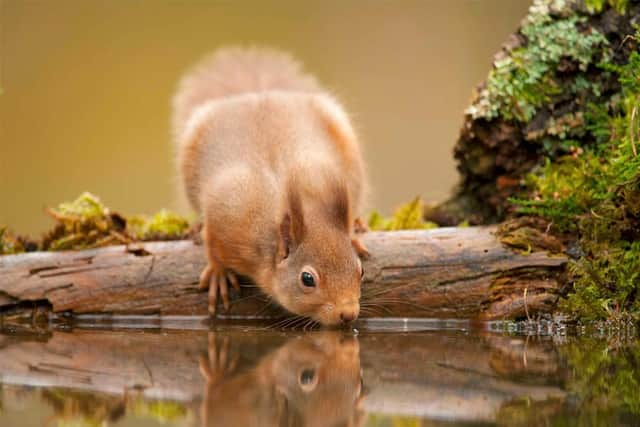Survey shows red squirrels hanging on in there in Northumberland
and live on Freeview channel 276
However, the decrease has been attributed to the significant damage caused by Storm Arwen last November, particularly around the mid-coastal area, which resulted in less sites with known squirrel presence being surveyed.
The survey carried out by Red Squirrels Northern England (RSNE) indicate that red squirrels were found in 53.2% of the 235 regional sites surveyed between March and May, similar to the 2021 findings.
Advertisement
Hide AdAdvertisement
Hide AdSightings have been recorded in Alnwick, Wooler, Rothbury, Morpeth, Blyth, Embleton, Newton-by-the-Sea, Amble, and various parts of Northumberland National Park.


Grey squirrels were found in 57% of survey sites - down from 59.9% last year.
Since 2015, red occupancy has been on the up – reflecting the efforts of rangers, volunteers, landowners and other stakeholders.
Among the most promising areas for sightings has been Cramlington.
Advertisement
Hide AdAdvertisement
Hide AdLeon Savage, chairman of the Cramlington Red Squirrel Group, says: “The results were generally as we expected as we have an up-to-date overview on our geographical area, although it was the first time we produced a map highlighting coverage from the survey.
“Our aim for next year is to increase red only areas or to have no grey presence in any given survey site. The success for reds in our area is likely down to being fortunate to have the support of all the significant landowners in the area and the help of over 40 volunteers who play a huge part in conservation efforts.
“Our local community is also very supportive towards the group.”
Visit www.rsne.org.uk for the full list of sightings.